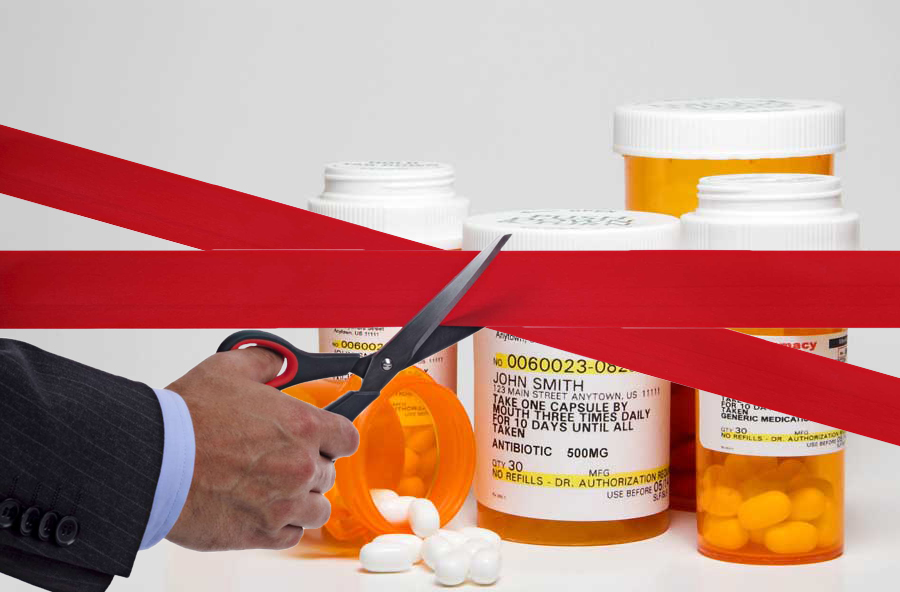
If we are to beat opiate addiction, taxpayers need drug companies to compete with new, more cost-effective treatment options, not protectionism
By Brett Healy
MacIver Institute President
It is hard to turn on the nightly news these days without seeing a story detailing a grave new threat in Wisconsin – the heroin and opiate epidemic. Talk to anyone who works in law enforcement and surely you will hear horror stories about the destructive and devastating impact heroin is having on communities all across Wisconsin.
According to a USA Today Network-Wisconsin report, we lost 281 lives to heroin addiction in just 2015 alone. In 2016, more people in Wisconsin died from opioid abuse (heroin and prescription opiates) than in car accidents. Think about that for a minute. More than traffic accidents.1
The situation is so grave, Wisconsin’s elected officials are moving outside the normal legislative calendar to respond to the crisis. Just last month, Governor Scott Walker called a special session of the Legislature to debate specific proposals designed to take this scourge head-on.
But while the horrific plague that is blanketing our state is receiving plenty of mainstream media coverage these days, there is an underlying fundamental lesson about free-market capitalism that may have been missed in all of this.
Back in 2015, Attorney General Brad Schimel, along with over thirty other AGs, sued Indivior, the makers of Suboxone, for alleged violations of state and federal antitrust laws. Suboxone is a treatment drug used to reduce cravings for opiate addicts. The lawsuit alleged that the makers of Suboxone engaged in “illegal ‘product hopping’, where a company makes modest changes to its product to extend patent protections so other companies can’t enter the market and offer cheaper generic alternatives.” 2
Apparently federal bureaucrats don’t realize that competition drives innovation and progress.
In 2002, Suboxone received expedited approval from the FDA as an orphan drug, a designation that is usually reserved for drugs that treat rare diseases. Not sure how opiate addiction is considered a rare disease, but I’m not a federal bureaucrat. With that designation, Suboxone was given market exclusivity in this treatment area for seven years. In reality, the FDA’s designation prevented competitors from bringing other alternatives to market.
Why would bureaucrats decide that Suboxone needed or deserved the orphan drug designation? Companies can product hop only if the all-mighty FDA gives the special designation in the first place and the protection that comes with that designation.
When government interferes in the free market, when the government picks winners and losers, we all lose. We lose the competition that true capitalism brings. Competition that makes our world better because companies compete to meet demand – the demand in this situation is the need for many innovative treatment drugs to battle the opiate epidemic. The federal government, by setting up a system handing out a special designation to just one company which prevented other companies from entering the marketplace, is actually delaying the market’s response to this demand. The inept federal government is only delaying the treatment help that is so desperately needed.
The special protections that came with the orphan drug designation were supposed to be lifted by 2009 yet Brad Schimel decided he still needed to do something six years later.
“Wisconsin and the nation are suffering hundreds and thousands of opiate-related deaths each year, and we cannot allow treatment barriers to exist for those suffering from addiction,” said Schimel at the time of the filing of lawsuit.
Maybe Schimel should look next to sue the FDA and this cockamamy system that stifles innovation and competition. The bureaucrats at the FDA clearly need a refresher course on Econ 101.
Speaking of bureaucrats, there is a change state bureaucrats could make while we wait for the merits of the lawsuit to be decided and for the FDA to find some common sense. State officials could move Suboxone from its current preferred drug designation to the more competition friendly non-preferred designation. Preferred drug designation? Sounds like state bureaucrats need to be reminded as well about the power of competition and innovation that only comes from a true free market system.
And while Walker, Schimel and the other politicians take the necessary immediate steps to fight the opiate epidemic here in Wisconsin, we need to have a long-term discussion as a nation about ways we can eliminate counter-productive government interference. Government interference that prevents the free market and competition from responding quickly and effectively to demand.
We clearly need to make this a demand of our elected government.
This column has appeared in the Janesville Gazette, La Crosse Tribune, and Chippewa Herald.
1 – Heroin killed 281 in Wisconsin in 2015 Eric Litke, USA TODAY NETWORK-WISCONSIN,
Dec. 28, 2016.
2 – Attorney General Brad Schimel press release, Maker of Opiate Addiction Treatment
Drug, Suboxone, Accused of Conspiring to Keep Monopoly Profits, September 23, 2016.